Now that you have handled all of the static HTML stings, we
will focus on fixing i18n problems in the C# code. This includes
both the in-line C# code in the .aspx files, as well as the .cs
source files. The first step is to scan the C# source.
-
Select Scan=>Manage Scans from the menu bar.
The Manage Scans Wizard appears.
-
Click New. The Globalyzer Scan dialog appears.
Enter "csharp_scan" into the Scan Name field.
With the Rule Set dropdown, select the csharp
Rule Set you created earlier. Leave all directories and
files listed in the Source Files unselected, or
alternately select them all. Globalyzer will treat the two
scenarios the same:
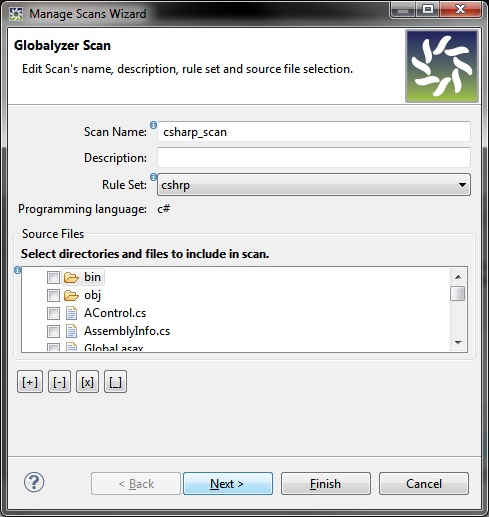
-
Click Next. The Globalyzer Scanning page appears.
Under Detect, uncheck Static File References
leaving Embedded Strings, Locale-Sensitive Methods
and General Patterns checked:
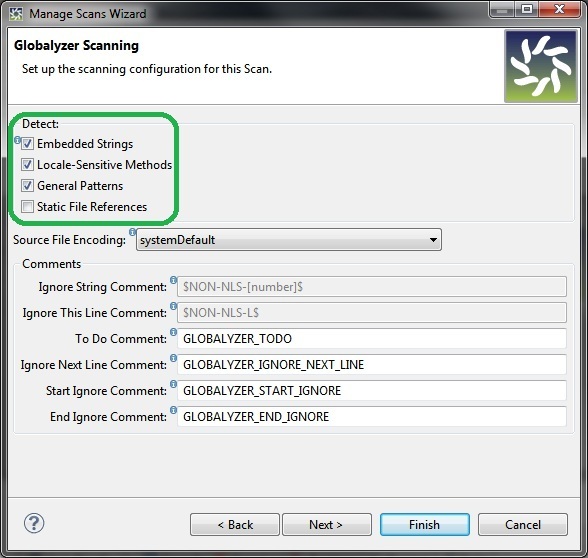
-
Click Next. The Globalyzer String Externalization
page appears.
Make sure that Resource File Type is
set to resx and that the Resource File Path is set
to the same location as you set for html_scan. For
example: C:/Inetpub/wwwroot/simple/MyResources.resx. Then,
set String Key Next ID to 200 to keep it out of the
range of the html_scan String ID values. All the other Fixing
settings should match those you set for html_scan as shown
below. It is recommended that this step be approached with significant
attention to detail.
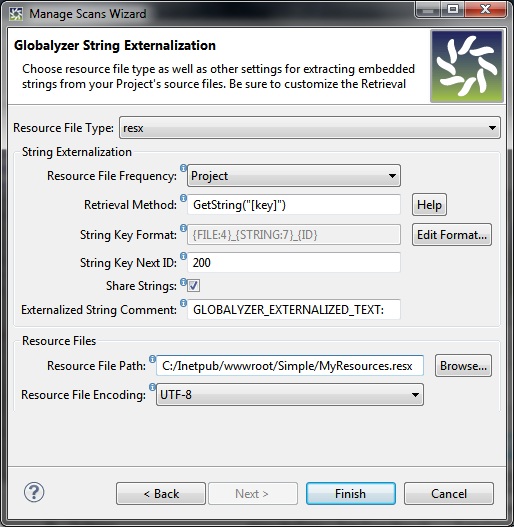
-
Click the Finish button at the bottom of the dialog.
-
Close the Manage Scans dialog.
-
In the Scan Results view, select csharp_scan in the
Scan dropdown:

-
Look in the Project Explorer view. If the Simple
directory is not expanded, expand it. It should look like the
window below:
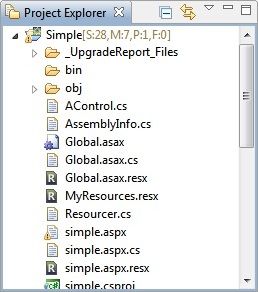
-
Click on the Single Scan button  in the Toolbar. Once
the scan is complete, select Embedded Strings from the
Results Dropdown. Within the results, click on the
File column (to sort). You should see similar results
displayed in the Scan Results table:
in the Toolbar. Once
the scan is complete, select Embedded Strings from the
Results Dropdown. Within the results, click on the
File column (to sort). You should see similar results
displayed in the Scan Results table:
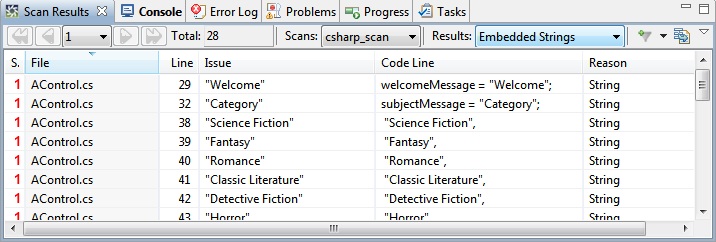
-
Select Locale-Sensitive Methods from the Results
dropdown to see Locale-Sensitive Method issues.
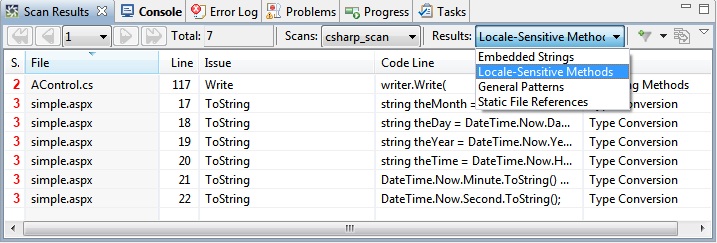
After inspecting
the list for a short time, select General Patterns.
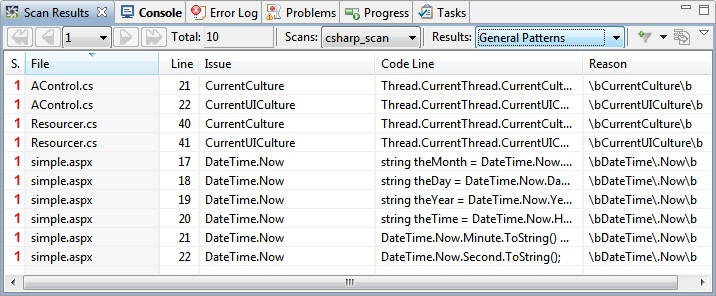
These results indicate that Globalyzer has detected three
categories of internationalization issues within the C# source in
our project. As before, it detected Embedded Strings. But this
time it also uncovered some Locale-Sensitive Methods and some
General Patterns.
-
In the case
of C#, Locale-Sensitive Methods are methods that perform culture-specific
functionality.
-
General Patterns is a catch-all for items that are not picked
up by Embedded Strings, Locale-Sensitive Methods, or Static File References.
In this tutorial there are a large number of General Patterns which are
Locale-Sensitive. These items are not methods so they are not
included in the Locale-Sensitive methods category.
They are therefore listed as General Patterns instead.
It is up to the developer to ensure that the Locale Sensitive
Methods and Constructors all use the correct culture.
In the next lesson we will start our fixing process by
examining these constructors, methods and properties detected by
Globalyzer.






 in the Toolbar. Once
the scan is complete, select Embedded Strings from the
Results Dropdown. Within the results, click on the
File column (to sort). You should see similar results
displayed in the Scan Results table:
in the Toolbar. Once
the scan is complete, select Embedded Strings from the
Results Dropdown. Within the results, click on the
File column (to sort). You should see similar results
displayed in the Scan Results table:





